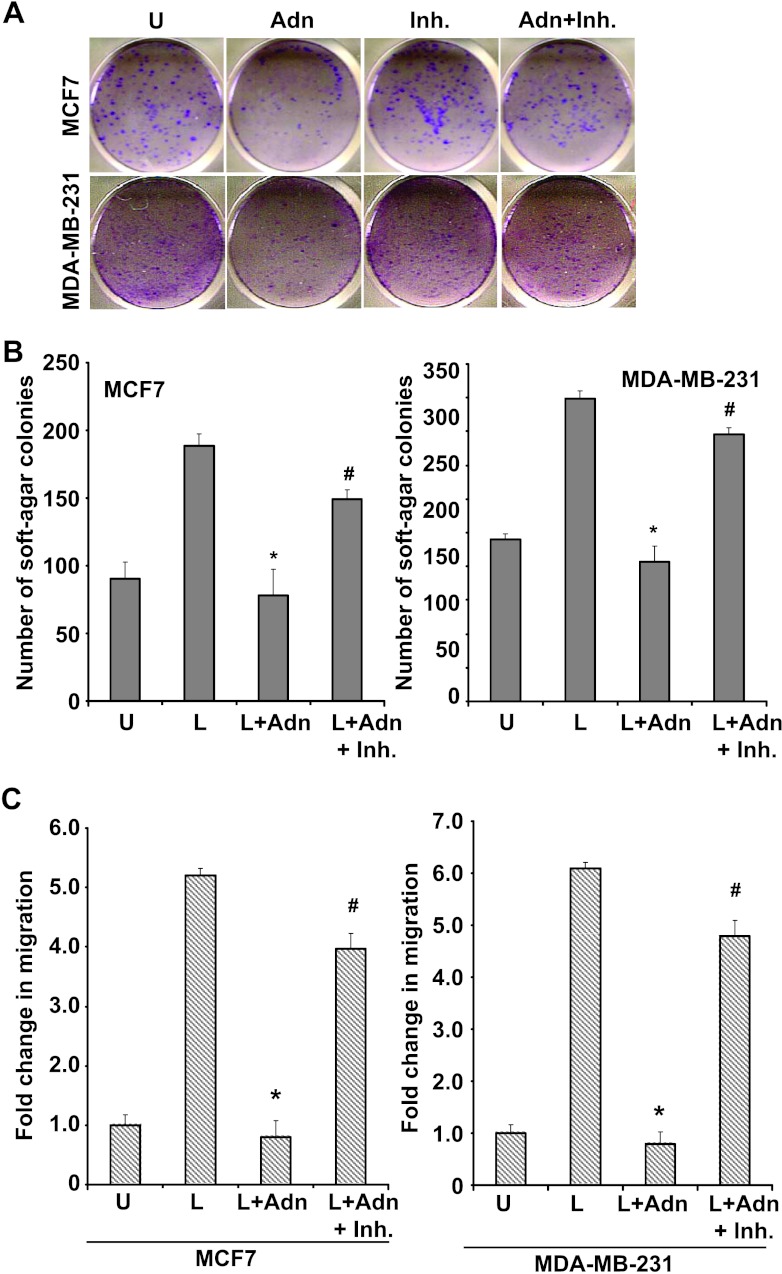Figure 5.
Inhibition of PTP1B reduces adiponectin's inhibitory effects on clonogenicity and anchorage-independent growth of breast carcinoma cells. (A) Breast cancer cells (MCF7 and MDA-MB-231) were treated with adiponectin (Adn) and PR-129 alone (Inh.) and in combination (Adn + Inh.) and subjected to clonogenicity assay. Colonies containing >50 normal-appearing cells were counted. PR-129 inhibited adiponectin's inhibitory effect on clonogenicity. (B) Breast cancer cells were subjected to soft-agar colony formation assay in the presence of leptin, adiponectin + leptin, and adiponectin + leptin + PR-129 (Inh.) for 3 weeks. Results are expressed as average number of colonies counted (in five microfields). *P < .005, compared with leptin-treated cells; #P < .01, compared to adiponectin + leptin-treated cells. PR-129 abrogates adiponectin-mediated inhibition of leptin-induced anchorage-independent growth. (C) Breast cancer cells were grown to confluence, scratched with a pipette tip, and photographed immediately following scratching (0 hour). Culture media were replaced with media containing 100 ng/ml leptin, leptin + 10 µg/ml adiponectin (Adn), and leptin + adiponectin + 50 µM PR-129 (Inh.). The plates were photographed at the identical location of the initial image (0 hour) at 24 and 48 hours. The results shown are representative of three independent experiments performed in triplicates. PR-129 inhibits adiponectin's effect on leptin-induced migration of breast cancer cells. The histogram shows the fold change in migration. *P < .01, compared to leptin-treated cells; #P < .01, compared to leptin + adiponectin-treated cells. All the experiments were performed thrice in triplicates.

